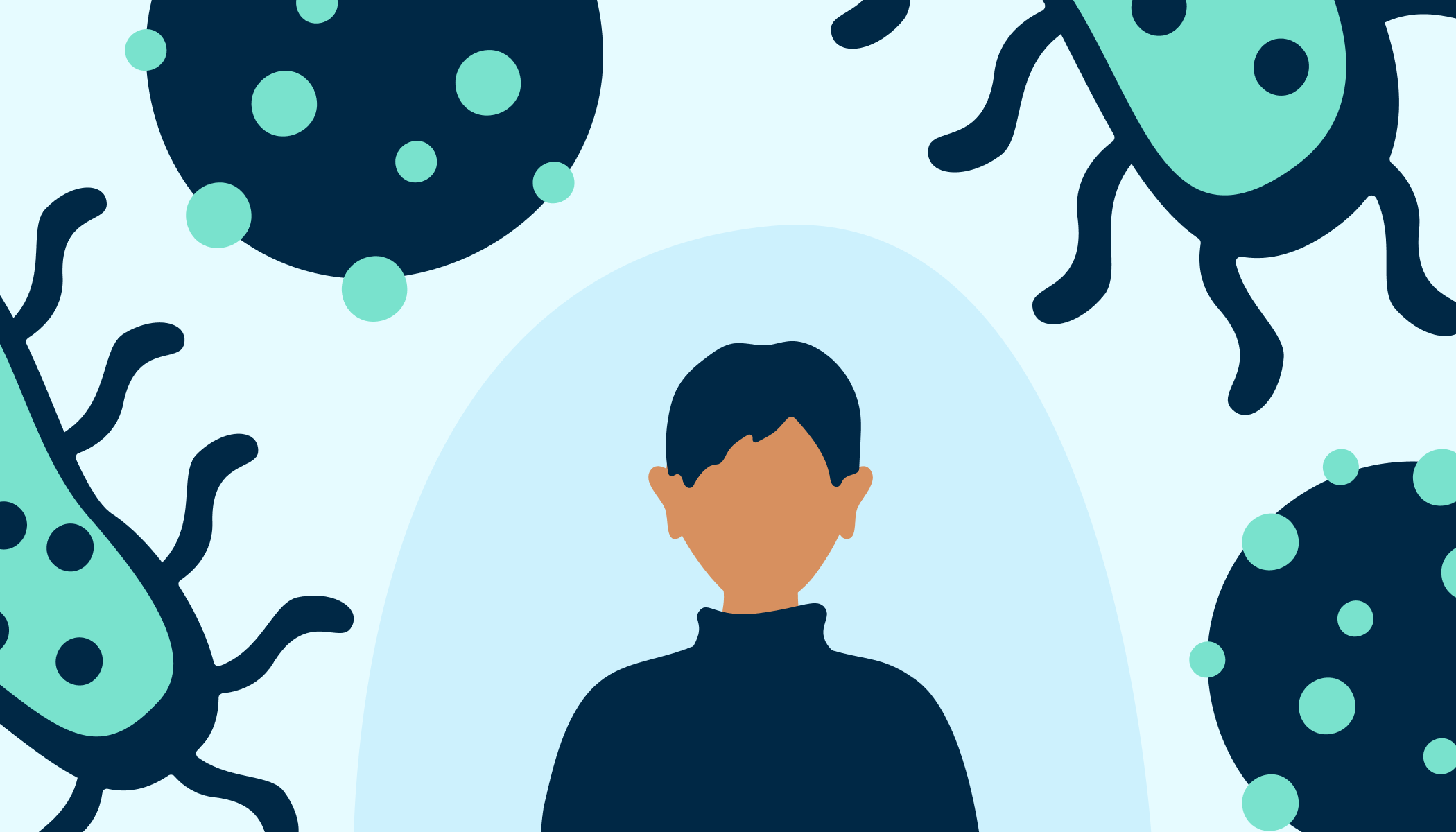Allergic reactions, and allergies in general, are very common. They happen when the body’s immune system overreacts to a substance, which is called an allergen. Our bodies make antibodies that attack the allergen, even though it’s not harmful.
Allergic reactions can be triggered by airborne allergens like pollen, food and medications. In some cases, the reaction can lead to anaphylaxis. Although rare, anaphylaxis is a serious condition that can be life-threatening if not treated.
What causes an allergic reaction?
Allergies are very common and can start at any age. There are hundreds of different triggers that can set off an allergic reaction, but some of the most common ones include:
- Foods, especially tree nuts (which include walnuts, almonds and cashews), peanuts, shellfish, fish, wheat, fruit, eggs, dairy and soy
- Medications like penicillin and some painkillers like aspirin or ibuprofen
- Venom from stings, from insects like bees or wasps
- Latex, a type of rubber found in some rubber gloves and condoms
- Contrast agents, which are dyes used in medical scans like X-rays
- Airborne allergens like pollen (hay fever), dust mites, animals with fur, and mould
What are the symptoms of an allergic reaction?
Allergic reaction symptoms can look different for everyone and happen anywhere in the body. Some common symptoms of a severe allergic reaction include:
- Itching, hives or skin flushing
- Red or itchy eyes
- Swelling of the tongue or throat
- Difficulty breathing, chest tightness or wheezing
- A feeling of the throat closing
- Diarrhoea
- Dizziness or fainting
- A rapid, slow or irregular heartbeat
- Low blood pressure
- Nausea or vomiting
- Confusion and anxiety
It’s important to act fast if someone is experiencing an allergic reaction. ‘An allergic reaction can start within minutes but can occur anywhere between 20 minutes and 2 hours after exposure to the allergen,’ says Dr Ramskill. ‘Allergic reaction symptoms can be mild at first, but quickly worsen.’
What happens to your body during an allergic reaction?
An allergic reaction happens when your body’s immune system mistakes something harmless for something dangerous.
‘When you have an allergy, your immune system overreacts, treating the allergen as a harmful virus or bacteria and producing antibodies to fight against it,’ explains Dr Ramskill.
‘When you’re exposed to the allergen again, these antibodies trigger a rush of chemicals, like histamine, from your immune system into your bloodstream. This can cause your body to go into anaphylactic shock.
‘When in your blood, the chemicals can cause allergy symptoms throughout the whole body. If your airways narrow, you might have difficulty breathing, which can be very dangerous.’
What should I do if someone is having a severe allergic reaction (anaphylaxis)?
‘Anaphylaxis is a medical emergency. It can be very serious if not treated quickly,’ says Dr Ramskill.
If you, or someone else, is having a severe allergic reaction, here’s what to do.
Use an adrenaline auto-injector. If the person has one of these, look for instructions on the side of the injector before using it. Epinephrine (the medicine in auto-injectors) is the most effective treatment for anaphylaxis, and it works best when given as soon as possible.
Call 999 or emergency medical services. Ask for an ambulance and tell the operator the person has anaphylaxis. Always call an ambulance, even if the person is starting to feel better. Symptoms can return a few hours after the initial attack, sometimes catching people off guard.
Lie the person down and raise their legs. If they’re having difficulty breathing, sit them up straight until their breathing improves. If they’re pregnant, lie them down on their left side.
Remove the cause (if possible). For example, as long as it doesn’t put the person in further danger, you could try to remove the stinger from the skin after a bee sting.
Give another adrenaline auto-injection if their symptoms don’t improve after 5 to 15 minutes.
Start CPR if it’s needed. If the person’s breathing or heart stops, immediately start CPR until help arrives.
Keep track of what’s happened. Tell the paramedics or hospital staff what medication you’ve given to someone. Make sure you tell them if there’s no auto-injector available.
‘Most cases are mild, but any anaphylaxis has the potential to become life-threatening,’ says Dr Ramskill. ‘Anaphylaxis develops rapidly, usually reaching peak severity within 5 to 30 minutes – though in rare cases, it may last for several days.’
How can I prevent a severe allergic reaction?
There are steps you can take to minimise your risk of anaphylaxis:
1. Carry an auto-injector
‘If you’re at risk of anaphylaxis, always keep 2 (in date) auto-injector pens with you. Tell friends and family where they are and teach them how to use them,’ says Dr Ramskill.
2. Avoid the allergen as much as you can
If you have a food allergy, avoid those foods, read food labels and take extra care when eating out. If you get allergic reactions to insect bites or stings, do your best to steer clear of areas where bugs live, wear loose-fitting long-sleeved tops and trousers and use insect repellent.
3. Wear ID
Dr Ramskill suggests that people at risk of anaphylaxis wear a medical identification bracelet or tag. In an emergency, it will let others know you have allergies, helping you get the right treatment quickly.
4. Track your symptoms
For less severe allergic reactions, keep a diary to help you link your allergy to the symptoms. You might notice sneezing, a runny nose and itchy eyes after grass has been cut or an allergic reaction rash might come up after you wear latex gloves. ‘Sometimes you may be referred to an allergy clinic to help identify what you may be allergic to,’ says Dr Ramskill.
This article has been medically reviewed by Dr Nikki Ramskill, a Livi GP.


